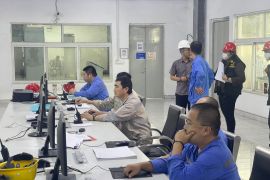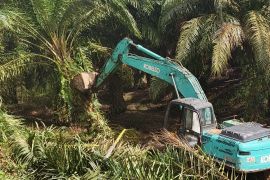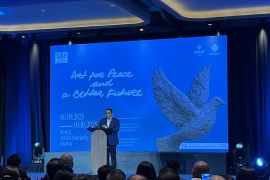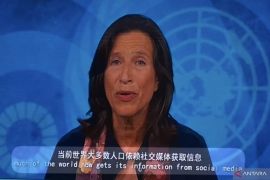The general staff said on its website it had "effectively" hit targets belonging to the "separatist terror organisation", a term used to describe the militant Kurdistan Workers Party (PKK). It did not elaborate, but said all its aircraft had returned safely to their bases.
Up to 100 PKK fighters launched simultaneous dawn attacks on three military outposts in Hakkari province near Turkey`s mountainous border with Iraq on Tuesday, killing eight Turkish soldiers and wounding 19.
The general staff said its troops killed 26 fighters in the ensuing clashes said to be the most intense battles of the separatist conflict this year, raising an earlier militant death toll of 18 reported by the prime minister`s office on Tuesday.
An official from Iraq`s Kurdistan Regional Government did not immediately answer calls seeking comment on the Turkish military strikes.
The clashes come at a time when Turkey is trying to forge new efforts to address the grievances of its Kurdish minority to end a conflict that has scarred the region for three decades.
Several thousand PKK militants are based in mountain hideouts in northern Iraq, from where they regularly launch attacks on state targets in mainly Kurdish southeastern Turkey.
The PKK, considered a terrorist group by Turkey, the United States and the European Union, has stepped up these attacks over the past year after abandoning a unilateral ceasefire.
The attacks have also prompted similar retaliatory air strikes by the Turkish military in northern Iraq over the past year. Many Turks favour a hardline response by their military to militant attacks on their soil.
Turkish television stations broadcast live images on Wednesday morning of the dead soldiers` coffins being loaded onto military planes to be taken back to their hometowns.
The ceremony was watched by a teary-eyed Necdet Ozel, the Chief of General Staff, and Turkey`s Interior Minister Idris Naim Sahin.
More than 40,000 people have been killed in the conflict since the militants took up arms in 1984 as part of their fight for more Kurdish autonomy and rights. (*)
Editor: Kunto Wibisono
Copyright © ANTARA 2012








